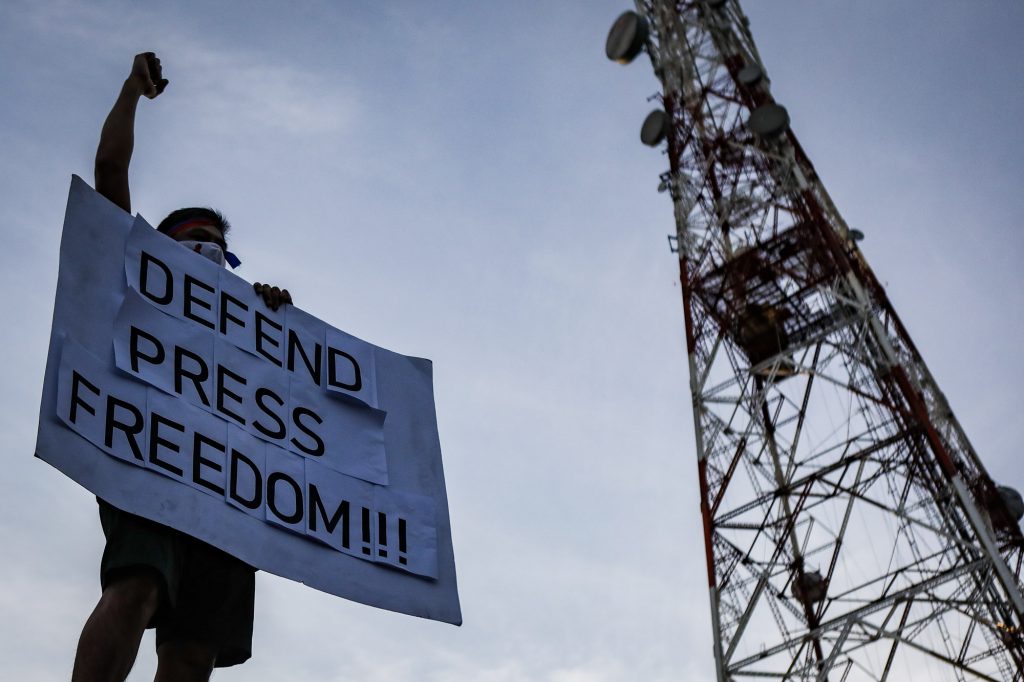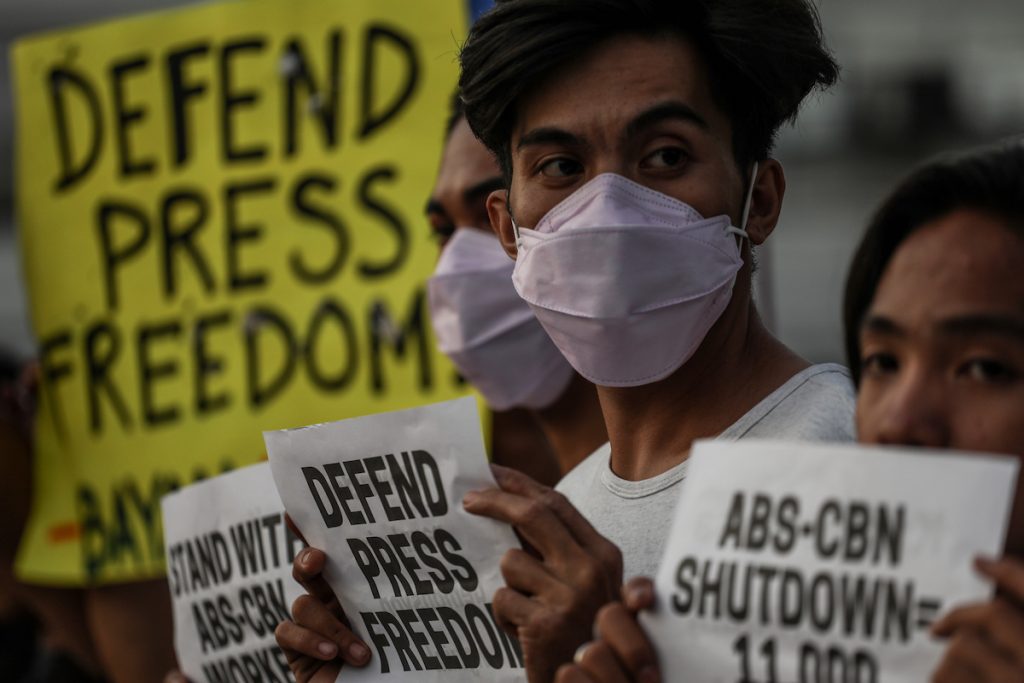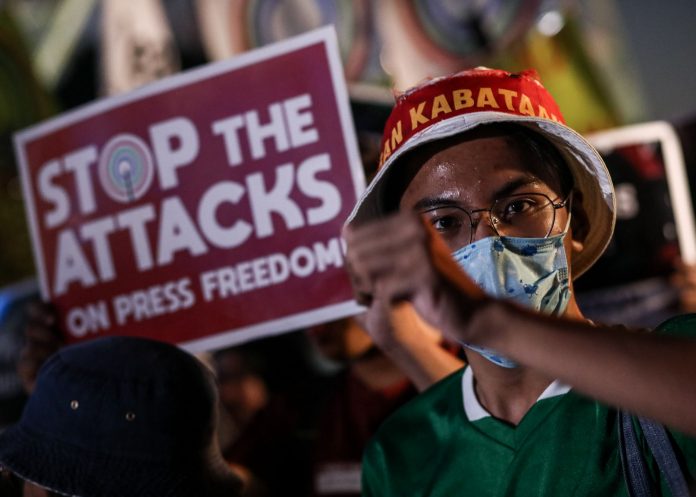To give this administration the cold shoulder is no doubt tempting to any journalist. Its stark contradictions. Out-and-out disinformation. The misogynistic, sexist comments, to mention little of the sick rape jokes. All delivered at our doorstep with the incoherence of a thousand-and-one loose puzzle pieces.
This seemingly systematized effort to create an air of confusion goes way back 2016 when newly-elected president Rodrigo Duterte commented that “corrupt journalists are legitimate murder targets.” They were testing the waters right from the start, to see how far they can go with controversial and largely unacceptable claims.
As a response, Reporters Without Borders (RSF) urged the Philippine media “to boycott his press conferences until he issues a formal, public apology. RSF also calls for legal action against Duterte.”
To quote Duterte: “Just because you’re a journalist you are not exempted from assassination, if you’re a son of a bitch.” The comment from the President came in the heels of the assassination of a journalist the week before.
The Inquirer further quoted Duterte as saying, “Most of those killed, to be frank, have done something. You won’t be killed if you don’t do anything wrong,” Duterte said, adding that many journalists in the Philippines were corrupt.”
Several journalists and groups, including myself and the National Union of Journalists of the Philippines (NUJP), immediately put a lid on the group’s call for a boycott for one simple reason: it’s a stab at the very heart of a journalist’s duty, which is to document statements spewed by the powers that be and to call them out on these statements should there be a need for it.
Duterte lost no time haranguing local media, even dared it to make good its threat. The NUJP went on to clarify that the call for a boycott of Duterte’s press conferences did not originate from Philippine media but RSF, an international organization out to defend freedom of information. The group is based in France.
Soon, his ilk followed Duterte’s lead. Who can forget former Presidential Communications Office assistant secretary Esther Margaux “Mocha” Uson’s misleading claims, reports and social media posts? She did all this with such flair for fibs and fabrications that she was even investigated by the National Bureau of Investigations (NBI) on May 2020.
Four years and 30,000 deaths later, the issue has remained stuffed with controversy. It was as if all that was in preparation for its ultimate purpose, the red-tagging of critics, where every blame, every pointing of the finger, regardless of the dearth of evidence, will now be taken as gospel truth.
Another problem stands out: newsrooms creating and sharing ‘memes’ of these largely unverified claims often without the benefit of context. These memes are often shared and reshared via social media in toto, sans explanation, contaminating further public perception.
So, the question remains: after four years of being fed one flawed statement after the other, are journalists bound by their profession to continue quoting unreliable official pronouncements?

I went about my day asking seasoned journalists about the matter. NUJP chair, Nonoy Espina, raised the mandate journalists are called to do regardless of questionable information coming from official state sources:
“Yes, of course, since our mandate is to deliver timely and as accurate information as possible to our people. We cannot do so if we do not call out the lies. To quote a falsehood in toto without saying it is false would be to spread that falsehood. That would betray our mandate, most especially if we do so knowingly.”
Multi-awarded journalist Inday Espina-Varona agrees and points to the needed urgency to expose them: “Yes, but only by immediately pointing out glaring contradictions or omissions, or, at least, explaining the context behind two or more seemingly contradictory positions among key actors.
“We are not stenographers nor voice recorders. Our task is to sift through words and actions of the powers-that-be and hold them accountable for and to these. Should we quote lies? Yes, but only by immediately pointing out the glaring contradictions, or omissions. Some government pronouncements are not actual lies but a twisting of narratives; here, too, journalists should be able to provide the right context or, at least, explain the context of two or more seemingly contradictory positions. Not tomorrow nor next week but with our first story [emphasis, mine].
“Good journalists will know how to double check or vet, and technology has made this task easier. Tyrants will always try to exploit existing communications technologies. Our task as truth-tellers is to train a harsh spotlight on the dark spaces they seek to hide from the world.”
Vera Files columnist Antonio J. Montalván II stresses the independence of the press as the overarching justification for the continuing coverage of the powers that be: “The operative word is ‘bound’ which applies to the press, yes. The press is independent of government. Only under such circumstance can it perform its sacrosanct role of giving the public sphere an unbiased dispersion of information. When it does, it enriches the public sphere with a sense of balance and transparency. Those conditions central to truth make a society a democracy, enabling it to check government when its centralized powers have gone unbridled.”

Seasoned correspondent Ed Lingao underscores what might happen if we leave it to the authorities to have the first and last word:
“I think yes, we are bound to report even the falsehoods, but with the added responsibility of putting in a fact-check at the soonest possible time […] There is an added layer of complexity in the PH context. Unlike the US, we have a government radio, tv, print, and online network, with a combined budget probably bigger than that of any major network. Add to that the administration’s online influencers.
“If we simply stop airing things officials say that we disagree with, people will just turn to these outlets, further strengthening their positions and further weakening our own. We will be giving truth to their claim that we do not report accurately, even their inaccuracies.
“So, the solution to me is to report their inaccuracies by pointing these out. But report them nonetheless. Just quickly put in the background information, the context, the conflicting facts. Challenge their assertions by presenting the real facts, not by ignoring their assertions.”
Former dean of the University of the Philippines College of Mass Communication, Luis V. Teodoro, said that quoting official statements should always be viewed under the prism of previously vetted facts in order to know if it agrees with them or not. As with any form of communication, stark contradictions are red flags.
“They should also provide the context in which the claim is being made. Just quoting falsehoods and leaving it at that adds to the disinformation that plagues public discourse,” he said.
Ellen Tordesillas of Vera Files agrees, with the strong emphasis that “we should expose the lies that the officials are spreading. We should make them accountable for the things that they tell the public”.
The impunity enjoyed by this administration can only be halted by meticulous, painstaking coverage of every word, every line, every act they choose to do for public consumption.
Leaving these undocumented would do society more harm than good. It would grant the structures of power the chance to singlehandedly become the only source of news and government claims, making us all none the wiser because of it.
Documentation and holding the guilty accountable for the disinformation go hand in hand in pushing back the jaws of lies, inaccuracies, and slurs. The more journalists report on these claims, hoisting them up under the light of context, the more evidence we will gather for the day of reckoning.
Joel Pablo Salud is an editor, journalist and the author of several books of fiction and political nonfiction. The views and opinions expressed in this article are those of the author and do not necessarily reflect the official editorial position of LiCAS.news.









